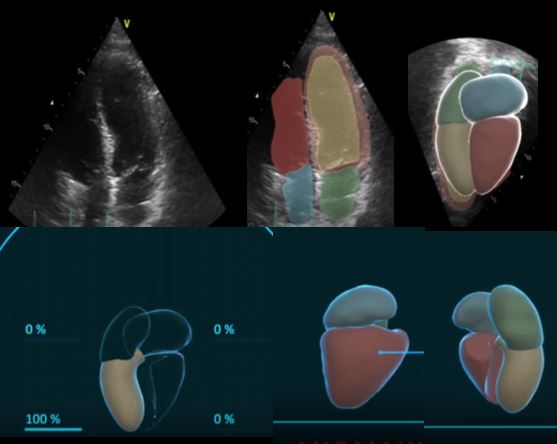CARDIA transforms 2D echocardiograms into 3D heart models
In modern medicine, where precision and speed in diagnoses can mean the difference between life and death, a pioneering technology capable of transforming the way doctors visualize the heart emerges from Spain. I speak of CARDIA by Apolo a tool that, through the use of artificial intelligence (AI)converts standard 2D echocardiograms into detailed 3D reconstructions of the heart.
This advance aims to change the course of cardiovascular diagnosis, positing itself as an effective solution to improve the efficiency of the healthcare system.
Behind CARDIA is Apollo AI, a Spanish company that has taken on the challenge of leading this innovative project. Under the direction of Daniel Ferrer, and with the support of a multidisciplinary team of 20 specialists in biomedicine and computing, in addition to the collaboration of renowned cardiologists, CARDIA is currently in the development and medical validation phases. Its objective is only to facilitate faster and more accurate diagnoses for cardiovascular and valvular diseases, making, at the same time, more efficient use of both human and economic resources in health centers.


The importance of this type of innovation becomes even more evident when considering that cardiovascular diseases represent the main cause of death worldwide, with almost nineteen million deaths recorded in 2019. In this context, CARDIA emerges as a crucial tool to obtain more accurate diagnoses in less time, thus contributing to saving lives.
The financing for this project comes from a network of private investors. They have figures such as Ana Victoria Ugidos, founder and CEO of BTSA, leading the board of directors, and with the support and experience necessary for its implementation and expansion.
I will be attentive to its evolution and its eventual commercialization scheduled for 2025, with the expectation that this technology will become a standard in cardiovascular diagnosis worldwide.
You have more information at cardia.ai
